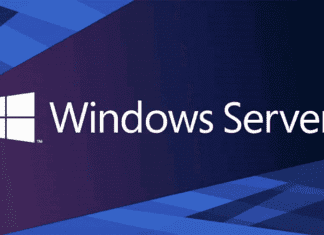In the world of video games, tribalism is something that we’ve all encountered at one point or another. Whether it’s the endless console wars, favoured control schemes or even characters within online games, it seems that, increasingly, the world of gaming is a place where opinions are seen as facts, more often than not.
Until recently, if you wanted to be a real gamer, you had to be playing on one of the four major platforms offered by Microsoft (with both desktops and Xbox), Sony and Nintendo. They were where all the serious AAA titles were, and offered power far above what other platforms could hope to match.
When gaming was first mentioned, pictures of bulky consoles, PCs solely for gaming, and immersive VR headsets immediately came to mind. However, smartphones have quietly evolved from simple communication devices to powerful gaming behemoths in our pockets and palms. The gaming landscape is changing as a result of the billions of people who now have access to this pervasive device. Join us as we explore the evolution of smartphone gaming from pixelated pastimes to the fast-paced adventures of today, solidifying it as a dominant force in the field of interactive entertainment.
A Brief History of Smartphone Gaming
1.1. The Early Days The inception of smartphone gaming dates back to simple titles like ‘Snake’ on Nokia phones. But it was the launch of Apple’s App Store in 2008 and the subsequent arrival of Android’s Google Play Store that truly revolutionized the mobile gaming scene.
1.2. Rise of Touchscreen Innovation With the evolution of touchscreens, game developers had a new playground. Instead of adapting PC or console game controls, new games like ‘Angry Birds’ and ‘Fruit Ninja’ were designed around swipe and touch mechanics.
Social Integration & Multiplayer Experience
Table: Smartphone Gaming vs Traditional Gaming Platforms
| Criteria | Smartphone Gaming | Traditional Gaming Platforms |
|---|---|---|
| Initial Cost | Low to Medium | Medium to High |
| Portability | Highly Portable | Limited to None |
| Game Library Diversity | High (Casual to Hardcore) | Mainly Mid-Core to Hardcore |
| Social Integration | Deeply Integrated (In-built chat, friend systems) | Requires separate applications/services |
At least, that’s what you’d hear if you played games primarily on smartphones and tablets.
(Guide) Why Smartphones Are Now Credible Gaming Platforms
Today, however, the situation is completely different. In 2018, mobile games generated a total of $70.3 billion in revenue, enough to make up 51% of the global market. Clearly, smartphones are now a hugely credible gaming platform, but how did they reach this stage? Join us as we share three huge reasons.
Massive Power Gains –
Mobile chipsets have grown more powerful year on year for well over a decade now, to the point where today the most powerful smartphones are capable of powering external monitors and running multiple simultaneous applications without fuss.
Both CPU and GPU power levels have climbed dramatically in recent years, alongside memory speed, enabling a level of mobile graphical quality and AI which ensures that smartphone gaming isn’t merely limited to short-form, simplistic experiences anymore.
The draw of a play-anywhere console that has sufficient power to produce incredible experiences is a large part of why 33% of developers are actively interested in developing smartphones and tablets.
Big Game Releases –
Ultimately, platforms live and die by the games available to them. Modern smartphones are blessed with a huge number of big games, which have helped establish them as real, credible alternatives to home console systems.
The likes of Fortnite and PUBG have made the leap from immensely popular games on consoles to immensely popular smartphone titles with few compromises. Meanwhile, smartphones have found themselves home to genres like MOBAs. These games traditionally found the most success on PCs, but millions of fans of the genre have been flooding to smartphones for fast, intuitive play.
Unique Advantages –
For developers, smartphones have a number of inherent advantages that simply aren’t found elsewhere. Crucially, this includes the adoption rate, which sits at 76% in advanced economies and 45% in emerging economies.
It’s not just the sheer volume of devices out there that works to smartphones’ advantage as a gaming platform either. Advanced connectivity is a basic requirement for smartphones, making truly wireless gaming a reality for each and every player. It enables instant LAN-party-style gaming, where friends and strangers can play together locally without requiring additional hardware or even the same smartphones.
It’s something that, in an age of walled-garden gaming platforms, is an advantage that’s unique to smartphones. Along the way, it has resulted in truly innovative gaming experiences which, in turn, have helped redefine the smartphone as a credible gaming platform.
In Conclusion
The development of smartphone gaming is evidence of both the gaming industry’s flexibility and the quick pace of technological change. It’s undeniable that smartphones have carved out their niche, providing billions of people worldwide with a vast and immersive gaming experience, while consoles and PCs will always have their special place. The once-humiliated cell phone has successfully transformed into a respectable gaming platform.
Smartphone gaming has matured gracefully and vigorously from its earlier status as the younger sibling in the large family of gaming platforms. It still stands strong today, displaying an impressive fusion of accessibility, innovation, and pure entertainment value. Smartphones have evolved into everyone’s gateway to vast virtual worlds, from casual swipes and taps to intense eSports competitions. We can only look forward in anticipation to where this dynamic platform will take us next as technology advances relentlessly. Indeed, smartphones have found their place in the orchestra of gaming, and they play it with style.
Are you a smartphone gamer? Let us know in the comments below!
People Also Ask (FAQs):
1. How have smartphones reshaped the traditional gaming landscape?
Mobile devices have opened up gaming to more people. Smartphones reach a wider audience than gaming consoles do, including everyone from young children to senior citizens. Their portability allows for impromptu gaming sessions, whether they occur during a commute or a coffee break, and their touch interfaces have given rise to original game mechanics.
2. Is the processing power of smartphones really comparable to traditional gaming platforms?
Absolutely! High-end smartphones can now run graphically demanding games with processing power comparable to some laptops. They may not yet be as powerful as the most recent consoles or high-end gaming PCs, but they deliver impressive performance in a small package.
3. How do in-app purchases impact the quality and playability of mobile games?
The way that games are monetized has been transformed by in-app purchases. They introduce optional improvements or accelerations while allowing game developers to distribute their products for free (thereby increasing access). They provide a choice without interfering with gameplay when properly balanced. The use of ‘pay-to-win’ models in video games too heavily has drawn criticism, though.
4. How significant is the eSports scene for mobile games?
The mobile eSports market has experienced rapid expansion. International competitions with sizable cash prizes are held for games like “PUBG Mobile” and “Mobile Legends,” attracting both players and spectators. The importance of mobile eSports cannot be overstated, especially with the growing integration of streaming services and the rise of mobile gaming celebrities.
5. What can we expect from the future of smartphone gaming?
Though making predictions about the future is always risky, current trends indicate that immersive AR and VR games, deeper social integration, cloud-based gaming services, and games that unexpectedly blur the lines between the real and virtual worlds are all on the horizon. The only absolute? It gets better from here.
These FAQs set out on a journey through the world of smartphone gaming, highlighting the fascinating nexus between technology, art, and human experience, illuminating why this platform has aroused interest all over the world.










